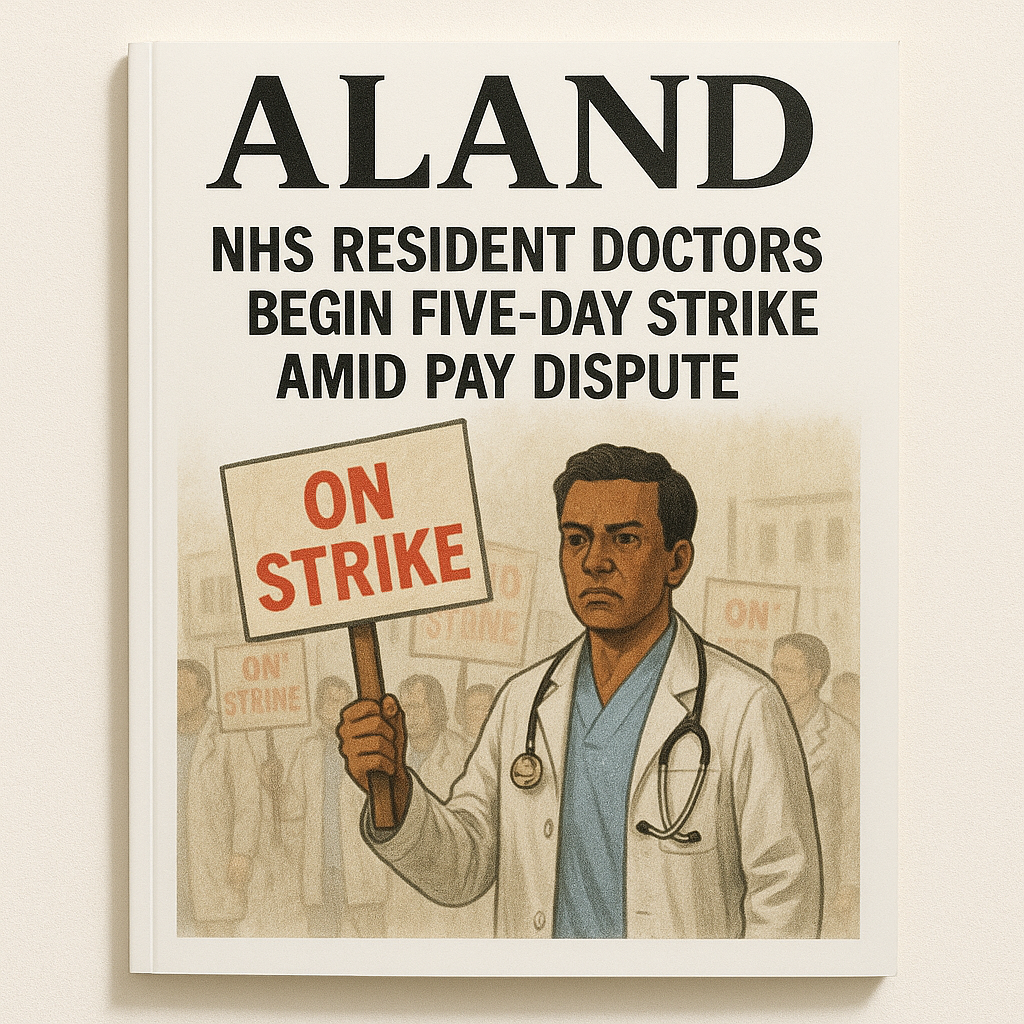NHS Resident Doctors Begin Five-Day Strike Amid Pay Dispute
Published Date: 25th Jul, 2025
July 25, 2025 – London
Resident doctors in England have commenced a five-day strike today, marking a significant escalation in their ongoing dispute with the government over pay and working conditions. The industrial action, organized by the British Medical Association (BMA), is set to last until 7 a.m. on Wednesday, July 30, 2025.
Tensions Escalate Over Pay Demands
The strike follows a ballot in which 90% of resident doctors voted in favor of industrial action, citing a need for a 29% pay increase to restore earnings eroded by inflation and years of below-inflation pay rises. The BMA argues that the government's previous offer of a 5.4% pay rise is insufficient and does not address the real-term pay cuts experienced by doctors since 2008.
Health Secretary Wes Streeting has criticized the strike as "completely unreasonable," emphasizing that the government cannot afford to meet the doctors' demands. He has urged the BMA to engage in discussions on non-pay issues, such as working conditions and training opportunities, but has ruled out further pay negotiations.
Impact on NHS Services
The strike is expected to disrupt NHS services across England, with up to 40% of routine appointments and procedures likely to be affected. Hospitals are prioritizing emergency and urgent care, while non-urgent treatments may be postponed or rescheduled. NHS England has instructed hospitals to maintain elective care wherever possible, intensifying disputes over responsibility for patient risks.
The BMA has expressed concerns about the government's approach, stating that instructing hospitals to run non-urgent planned care stretches safe staffing too thinly and risks patient safety. They have called for a reconsideration of these instructions to ensure a safe and effective response to the strike.
Public Opinion and Political Fallout
Public support for the strike has declined, with recent polls indicating that 52% of the public oppose the industrial action. Critics argue that the timing of the strike, amid ongoing efforts to reduce NHS waiting lists, could undermine public trust in the healthcare system. Prime Minister Sir Keir Starmer has warned that the strike could harm patients, delay treatments, and ultimately aid those seeking to dismantle the NHS.
The Labour government faces increasing pressure as the strike progresses, with calls for a resolution to prevent further disruption to NHS services and to address the underlying issues raised by resident doctors.
Looking Ahead
As the strike enters its second day, both the government and the BMA remain entrenched in their positions. The outcome of this industrial action could have lasting implications for NHS staffing, funding, and the broader healthcare landscape in the UK. Stakeholders on all sides are closely monitoring developments, hoping for a resolution that balances the needs of healthcare professionals with the imperative to provide safe and effective care to patients.
Date: 25th Jul, 2025

